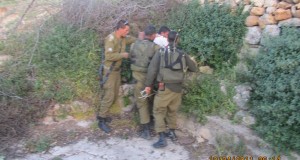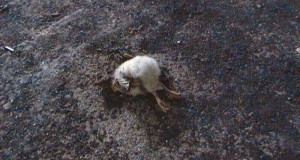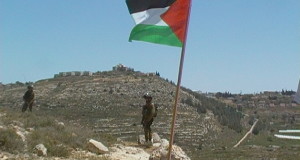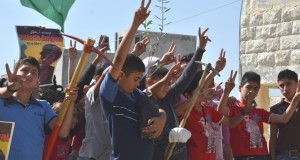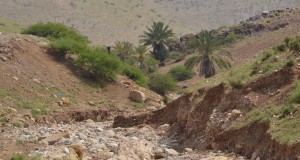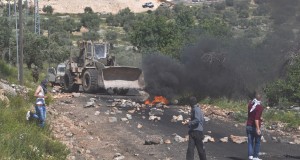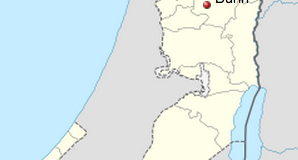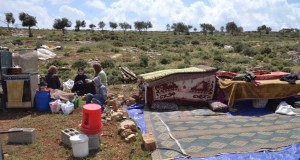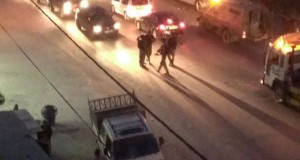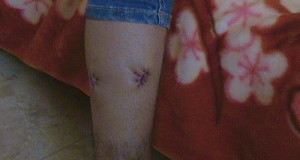20th April 2014 | International Solidarity Movement, Nablus Team| Khan al-Luban, Occupied Palestine On Monday 21 April 2014 two International Women’s Peace Service [IWPS] volunteers were playing uno [a card game] outside with two children of the Abu Jamal family in Khan al-Luban, ...
Read More »Settlers set fire to Palestinian chicken farm
20th April 2014 | International Solidarity Movement, Nablus Team| Madama, Occupied Palestine On Friday 18th April, during the night in the village of Madama, settlers from a nearby illegal settlement entered a Palestinian farm and sat fire to a newly ...
Read More »“A message of peace” from the village of Qaryut met with violence from the Israeli army
19th April 2014 | International Solidarity Movement, Nablus Team| Qaryut, Occupied Palestine The people of Qaryut began weekly demonstrations three weeks ago, due to the Israeli military’s decision to close the main road near to the village. Yesterday, the 18th ...
Read More »An area of land and an olive tree planted in Asira, in memory of Vittorio Arrigoni
17th April 2013 | International Solidarity Movement, Nablus Team | Asira, Occupied Palestine On the 16th of April, the children of the Retaj Centre for Women and Children in Asira planted an olive tree on a piece of land which has been ...
Read More »Harassment campaign continues in the Jordan Valley
13th April 2014 | International Solidarity Movement, Nablus Team | Al Maleh, Occupied Palestine The Israeli military oppression of Palestinians living in the Jordan Valley can take many forms, including the systematic confiscation of essential tools and materials, to physical punishment ...
Read More »Two Palestinians arrested during weekly demonstration in Kafr Qaddum
12th April 2014 | International Solidarity Movement, Nablus Team | Kafr Qaddum, Occupied Palestine Yesterday, Friday the 11th of April, during the weekly demonstration in Kafr Qaddum, the Israeli army arrested two Palestinian youths. As with every Friday, the demonstration [which has taken place since 2011] ...
Read More »New road in Burin met with settler violence and harassment
11th April 2014 | International Solidarity Movement, Nablus Team | Burin, Occupied Palestine Villagers in Burin are attempting to open a new road, in order to connect the village with the main road heading towards the city of Nablus. This project ...
Read More »Israeli forces destroy a camp where farmers live and work
11th April 2014 | International Solidarity Movement, Nablus Team | Jawana, Occupied Palestine Yesterday morning at approximately 7am, the Israeli army destroyed five tents donated by the Red Crescent to a group of farmers in the area of Jawana, between the village of ...
Read More »One man shot and arrested by Israeli Border Police in Huwwara village
10th April 2014 | International Solidarity Movement, Nablus Team | Huwwara, Occupied Palestine On Sunday 6th of April, a 35-year-old Palestinian man was shot with live ammunition and then arrested by an Israeli Border Police Officer. This was after the man had ...
Read More »Settler shoots Palestinian as he tries to repair his car
9th April 2014 | International Solidarity Movement, Nablus Team | Urif, Occupied Palestine On Sunday 30th March on the road to Madama (near Nablus), 25-year-old Nidal, from the village of Urif, was fixing his car when a settler with a handgun ...
Read More » International Solidarity Movement Nonviolence. Justice. Freedom.
International Solidarity Movement Nonviolence. Justice. Freedom.
